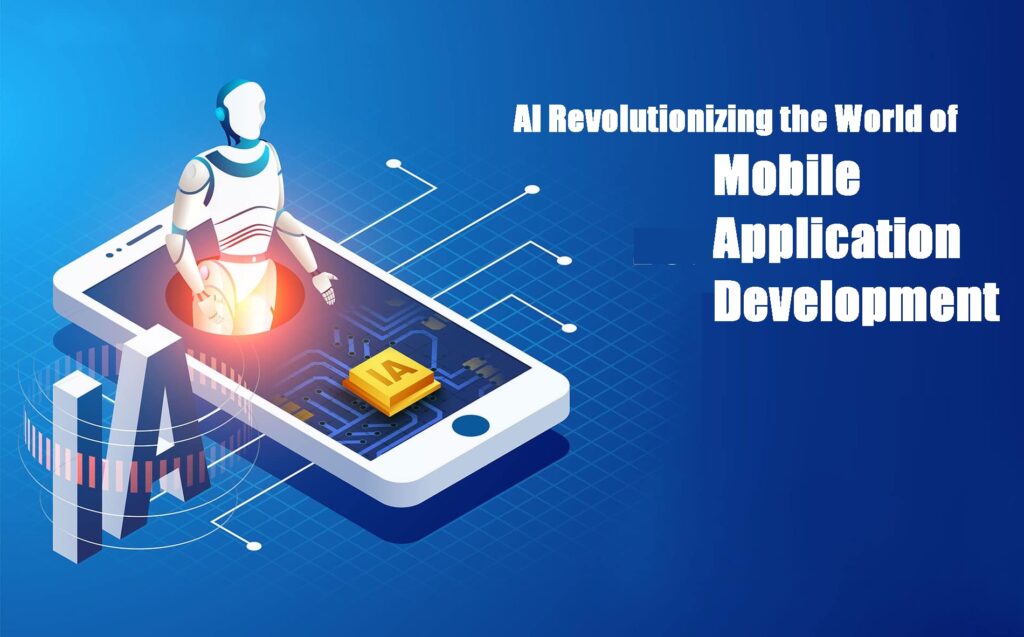The convergence of Artificial Intelligence (AI) and the Internet of Things (IoT) has ushered in a new era of innovation across industries. Both AI and IoT are pivotal technologies in the digital transformation journey. When combined, they enhance the capabilities of devices, enabling smarter decision-making, automation, and optimized operations. As a result, IoT app development companies are at the forefront of a revolution, leveraging AI to deliver intelligent solutions for businesses and consumers alike.
In this blog, we will explore how AI is transforming IoT app development, the benefits it brings to businesses, the role of AI in IoT devices, and key considerations when hiring an IoT app development company.
The Intersection of AI and IoT: A Paradigm Shift
AI and IoT are two distinct yet complementary technologies. IoT refers to the interconnection of devices through the internet, enabling them to communicate and share data in real time. These devices, embedded with sensors and software, collect vast amounts of data from the physical world. AI, on the other hand, is the simulation of human intelligence by machines. AI processes and analyzes the vast datasets generated by IoT devices, deriving actionable insights that would be impossible for humans to achieve manually.
The fusion of AI and IoT creates a robust ecosystem known as AIoT (Artificial Intelligence of Things), wherein AI enables IoT devices to become more efficient, autonomous, and intelligent. This combination empowers businesses across industries, driving innovation in smart homes, healthcare, agriculture, manufacturing, transportation, and beyond.
Key Areas Where AI is Revolutionizing IoT App Development
1. Predictive Maintenance
One of the significant applications of AI in IoT app development is predictive maintenance. In industries such as manufacturing, transportation, and energy, IoT devices collect data on the health and performance of machinery. AI algorithms analyze this data to predict equipment failures before they occur. This enables businesses to take preventive measures, reducing downtime, maintenance costs, and disruptions in operations.
For example, in the manufacturing sector, AI-powered IoT apps can predict when machines will require maintenance based on sensor data such as temperature, vibration, and usage patterns. This level of insight is invaluable for maintaining high efficiency and avoiding unexpected breakdowns.
2. Real-Time Analytics and Decision-Making
IoT devices generate an immense amount of real-time data from various sources. However, without AI, extracting meaningful insights from this data is a challenge. AI algorithms are designed to process real-time data streams, identify patterns, and make data-driven decisions autonomously.
For instance, in the retail industry, AI-integrated IoT apps can analyze data from in-store sensors to optimize product placement, monitor foot traffic, and predict consumer behavior. Retailers can leverage these insights to improve inventory management and enhance the overall shopping experience.
3. Autonomous Systems and Smart Devices
The integration of AI into IoT has given rise to autonomous systems and smart devices. AI allows IoT devices to make decisions without human intervention, enabling automation in several areas, such as smart homes, self-driving cars, and drones.
In smart homes, AI-enabled IoT apps allow devices to learn from users’ behaviors and preferences. For instance, smart thermostats can automatically adjust the temperature based on the homeowner’s routines, while AI-powered security cameras can distinguish between humans, animals, and objects to detect potential threats more accurately.
4. Enhanced Security and Privacy
With the proliferation of IoT devices, security and privacy concerns have become more critical than ever. AI is playing a pivotal role in addressing these challenges. By leveraging machine learning algorithms, AI can detect anomalies in IoT networks and devices, flagging potential cyber threats in real time.
For example, AI-based IoT apps can monitor network traffic patterns, identify suspicious behavior, and mitigate security breaches before they escalate. This proactive approach helps protect sensitive data and ensures the privacy of users in an increasingly connected world.
5. Supply Chain Optimization
AI is transforming supply chain management by combining IoT data with advanced analytics. By monitoring and analyzing data from IoT-enabled devices such as GPS trackers, RFID tags, and sensors, AI can optimize supply chain processes in real time.
AI-powered IoT apps enable businesses to track the location of goods, monitor environmental conditions (e.g., temperature and humidity), predict delivery times, and anticipate delays. This real-time visibility allows for better inventory management, reduced operational costs, and improved customer satisfaction.
Benefits of AI in IoT App Development
The integration of AI into IoT app development companies offers numerous benefits for businesses across various industries:
1. Increased Efficiency
AI automates tasks that were once manual, reducing the need for human intervention. This results in increased efficiency, as systems can operate around the clock without fatigue. IoT devices, powered by AI, can optimize processes, leading to faster decision-making and more accurate outcomes.
2. Cost Savings
AI-driven IoT solutions help businesses cut costs by optimizing resource usage and preventing costly equipment failures. Predictive maintenance, for instance, reduces the need for expensive emergency repairs, while autonomous systems eliminate the need for additional labor.
3. Personalized User Experiences
AI enhances the user experience by enabling IoT devices to learn from user behavior and preferences. This leads to more personalized interactions, making devices like smart speakers, wearable technology, and connected appliances more intuitive and user-friendly.
4. Better Decision-Making
With the ability to process vast amounts of data in real time, AI-powered IoT apps provide actionable insights that help businesses make informed decisions. Whether it’s optimizing supply chain operations or predicting customer demand, AI ensures that decisions are based on accurate, data-driven analysis.
5. Enhanced Security
AI’s ability to detect anomalies in IoT networks and devices plays a crucial role in enhancing security. By identifying potential threats in real time, AI helps businesses prevent cyberattacks and protect sensitive data, making IoT ecosystems more secure.
Considerations for Hiring an IoT App Development Company
If you’re planning to develop an AI-powered IoT solution, it’s crucial to partner with the right IoT app development company. Here are key factors to consider:
1. Expertise in AI and IoT Integration
Look for a company that specializes in both AI and IoT technologies. The successful integration of AI into IoT app development requires a deep understanding of both fields. Ensure that the IoT app development company has a proven track record in delivering AI-powered IoT solutions.
2. Customization Capabilities
Every business has unique needs, and a one-size-fits-all approach won’t work for IoT solutions. Choose a company that offers customized IoT app development services tailored to your specific industry, use case, and business goals.
3. Scalability
IoT ecosystems can grow rapidly, and your solution should be able to scale along with your business. An experienced IoT app development company will build solutions that can handle increasing amounts of data, devices, and users as your IoT network expands.
4. IoT App Development Cost
The IoT app development cost depends on several factors, including the complexity of the project, the number of devices, and the AI integration required. When hiring an IoT app development company, ensure that the cost is transparent and aligned with your budget. While AI integration may add to the initial investment, the long-term benefits in terms of efficiency and cost savings are worth considering.
5. Post-Development Support
IoT systems require continuous monitoring, updates, and maintenance to ensure optimal performance. Ensure that the IoT app development company offers ongoing support and maintenance services after the development phase. This ensures that your IoT ecosystem remains secure, up-to-date, and capable of adapting to future needs.
Conclusion
AI is undoubtedly revolutionizing the IoT landscape, empowering businesses with smarter, more autonomous systems that deliver actionable insights and streamlined operations. From predictive maintenance and real-time analytics to enhanced security and supply chain optimization, AI is unlocking the full potential of IoT devices.
For businesses looking to capitalize on this transformation, partnering with an experienced IoT app development company is essential. Whether you aim to improve efficiency, reduce operational costs, or enhance user experiences, AI-powered IoT apps can provide the competitive edge you need in today’s rapidly evolving digital world.
As the demand for IoT solutions continues to rise, the role of AI in driving innovation will only grow. Companies that invest in AI-driven IoT app development today are poised to lead the way in tomorrow’s connected world, reaping the rewards of smarter, more efficient systems.
If you’re ready to embark on your AI-powered IoT journey, consider working with IoT app development companies that have the expertise, scalability, and vision to bring your ideas to life. The future of IoT is bright, and with AI at its core, the possibilities are limitless.
Incorporating AI into IoT solutions is no longer optional but a necessity for businesses that want to stay ahead of the curve. The synergy between AI and IoT will continue to evolve, offering more advanced solutions for industries across the board. Whether you are a startup or an enterprise, investing in AI-powered IoT apps will drive your business towards unprecedented success.







